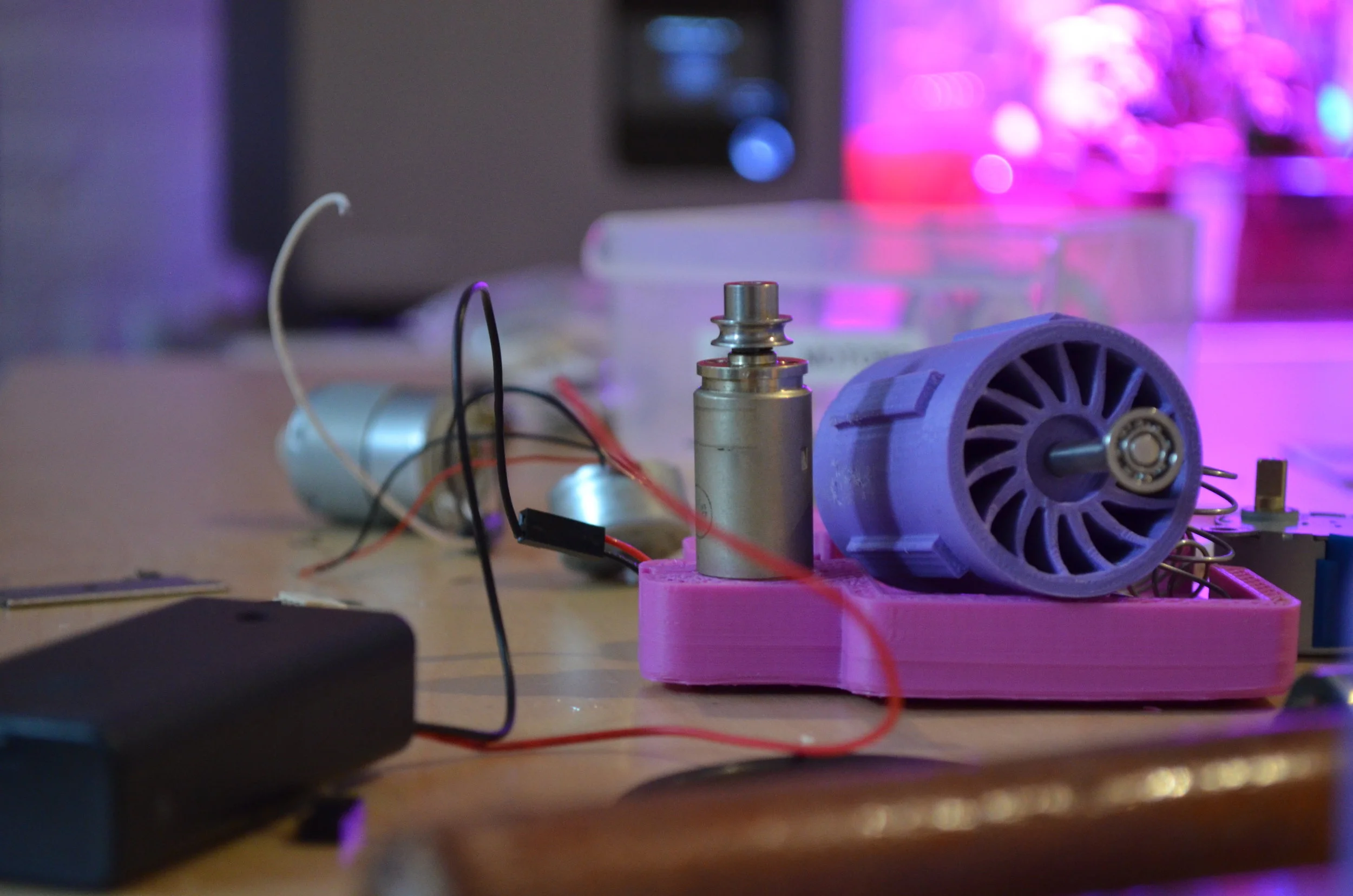Design:
- "Google has a new drawing tool that's extremely cool and also a little bit depressing."
- It won't be long until complex, autonomous or semi-autonomous machines become a regular sight in our daily lives, whether it's in our offices or on our streets and sidewalks. As we step into a system where robots are living out in the world and not just on factory floors, new design and engineering concerns also arise, like making signage legible to humans and machines. In the future we may have something like autonomous-friendly building codes layered on top of those designed to serve human needs, with things like elevators or tangible interfaces having an invisible aspect for machine access.
- Perhaps a conceptual art project, possibly a goods-by-subscription startup, or maybe a parody of designer aesthetics and Silicon Vallery startups, Lot 2046 has been making some ripples on social media. The project is by one of Vadik Marmeladov of Lapka fame, the tiny design firm that was acquired by Airbnb in 2015, Vadik left in 2016).
Branded:
- A Burger King TV advertisement exploited Google's voice interface control, triggering devices within range to start spouting information about hamburgers. An immediate and predictable backlash over the stunt has given the company even greater free press exposure, but it does underscore some exploit vulnerabilities inherent in voice interfaces, akin to early hacking practices of phone phreaking, where tone generation could grant free access to long distance calling. We would not be surprised if this one-trick-pony marketing gimmick leads to new regulatory law from the FCC banning such practices in the future.
Building Things:
- Fastenal, the manufacturer, distributor and reseller of construction/industrial supplies has seen an increase in sales, in part from their vending machineswhere you can pick up a can of WD-40, a respirator, welding supplies or whatever other relevant manufacturing errata you might need. The machines have been around for awhile, but their usage has grown significantly (Fastenal now has over 64,000 vending machines). It's the sort of dull but incredibly valuable innovation that escapes many startups working in IoT or technology more broadly.
- There are probably more online enabled, direct-to-consumer mattress companies than anyone needs, but the story of Purple is more interesting than most. They've bootstrapped their company rather than taking VC dollars and seem to have some genuinely novel intellectual property that emerged from their previous venture developing wheelchair seating to reduce risk of pressure sores. The article reads more like a PR release for the company than a real dig into their operations, but well worth a read for anyone looking at non-VC paths to growth.
- There's about $17 MM worth of titanium on a 787 according to Boeing. They've been working with Norsk Titanium to print some of these titanium parts to near net shape and cut costs.
Virtually There:
- A good piece from Polygon on the abuse risks for Virtual Reality from people who have been using it in therapeutic and psychological research contexts for many years. Even if you're not particularly interested in VR, the article has an interesting chart showing adoption rates of different technologies, and how the most influential inventions of our era have reached wide usage at a breakneck pace, potentially outrunning society's ability to adapt via conventions, norms and regulations.
Machines for Moving:
- Marble is running a small pilot program of their food delivery robots in San Francisco. The robots are pretty big, fairly slow and require human oversight for now.
- 35% of exports by value travel via air freight, which only amounts to 1% by volume.
- An intriguing project from IBM & Local Motors (the company that's been working on 3D printing car bodies) to create small, autonomous shuttle buses with an aim to serve people with disabilities. A careful reading of the article also highlights that part of the need for such a service comes from weak ADA guidelines for public transportation, and underdeveloped, underfunded public transportation more generally. While a diversity of solutions to transportation problems is helpful for driving innovation, private partnerships can leave municipalities and regions suddenly exposed and residents stranded in leaner times.
- The Boston-area bike-sharing company Hubway offered up ridership data for anyone to crunch and examine, and one analysis found that the "loneliest bike" was ridden for a brief 4.18 minutes.

